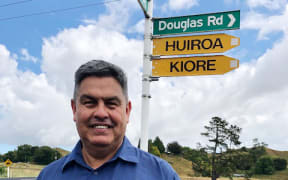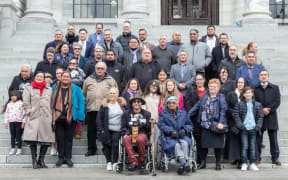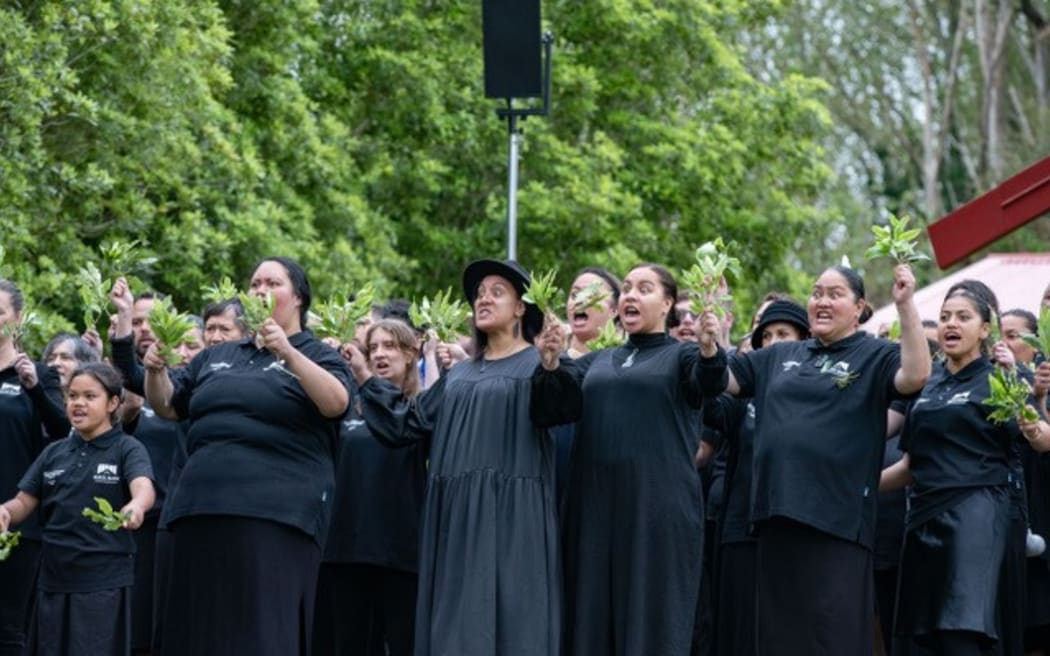
Tamzyn-Rose Pue, centre, Te Upoko o te Whenua Marae chair at Tarata, gives the karanga, alongside her cousins, Tessa-Moana Kake-Tuffley, left, and Kiri Trainor. Photo: LDR/ Lisa Burd
Of the 171 tupuna of Ngāti Maru iwi living between 1880 and 1920 only 53 percent have descendants who survive today.
That was the devastating impact of land confiscation described at Te Upoko o te Whenua marae on Saturday, as the Crown came to apologise in the final step of Ngāti Maru's Treaty of Waitangi settlement.
The head negotiator for Ngāti Maru, Anaru Marshall, said 47 percent of those Ngāti Maru left no children or mokopuna.
"This is a demonstration of the true impact of dislocation, land loss, raupatu [confiscation]."
"Te mate o te whenua, te mate o te tangata: loss of land and loss of life."
All of those 171 tupuna were named as more than 50 children descended from or related to them came forward to receive titles to 17 culturally significant properties, returned to the iwi in its settlement.
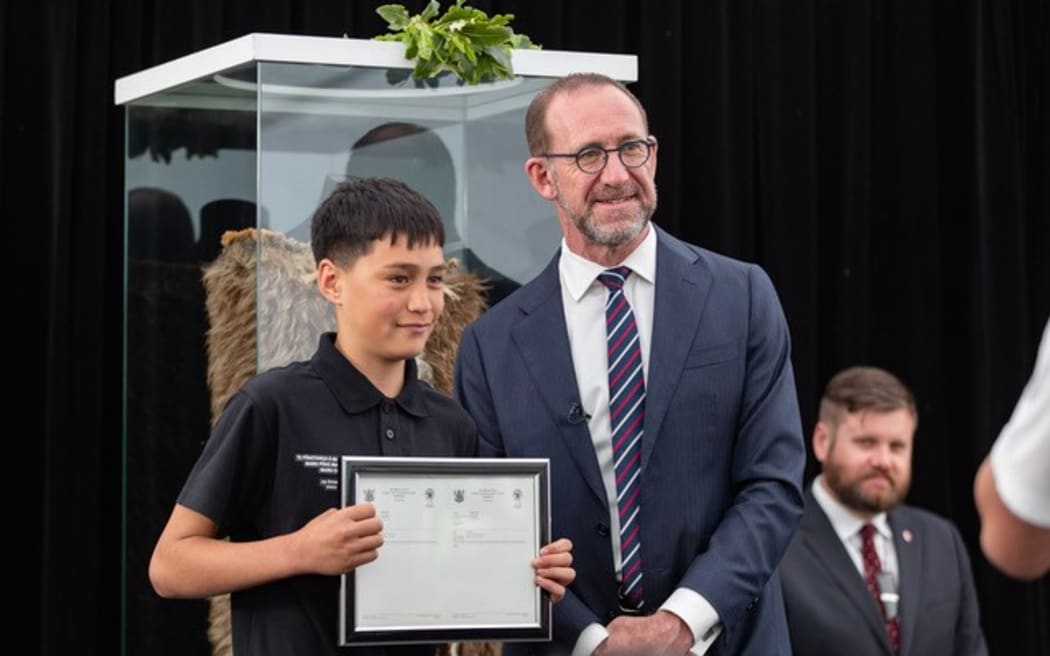
Tipene Capper receives one of 17 land titles returned by Treaty Negotiations Minister Andrew Little. Photo: LDR/ Lisa Burd
Treaty Negotiations Minister Andrew Little came to the marae at Tarata to deliver the "long overdue" apology.
He said the Crown regretted bringing war to Taranaki and for the "destructive and demoralising effects" of Crown actions.
"Its confiscation of half of the rohe of Ngāti Maru was indiscriminate and unwarranted, and the Crown deeply regrets this confiscation without cause."
Little apologised with "profound remorse" for the suspension of law allowing exile and imprisonment of Ngāti Maru people for taking part in peaceful resistance, and for its "unconscionable actions at Parihaka and the ensuing hardship and heartache Ngāti Maru peoples suffered".
"For those actions which rendered your iwi almost completely landless, severed your connection to your whenua, and inflicted economic hardship and suffering on generations of your people, the Crown sincerely apologises.
"And for the ways the Crown's breaches of te Tiriti o Waitangi have threatened your Marutanga, offended against your ancestors, undermined your communities and your leadership, and compromised your cultural and spiritual well-being, the Crown humbly apologises."
The apology would normally have been delivered when the Deed of Settlement was signed by Little and Ngāti Maru negotiators in February 2021.
But Covid-19 restrictions prevented that, so Little promised to return when the iwi could again come together.
The settlement Act describes how half of Ngāti Maru's land was confiscated as punishment, despite them not being involved in the Taranaki wars.
The rest of its land was taken through the Native Land Court and leases under the Public Trustee, and this loss "eroded tribal structures, created severe poverty, and damaged the physical, cultural, and spiritual health of generations".
In accepting the apology, Marshall detailed how Ngāti Maru were deemed squatters on one block of their own land at Pūrangi in 1891.
He said despite "endless petitions" and Native Land Court rulings from 1892, the Crown refused to return the land to avoid setting an "unwelcome precedent."
By 1910 as few as 10 Ngāti Maru were on the land, some living on the side of the road.
In 1969 400 acres came up for sale, but the Crown dismissed a Ngāti Maru man who applied to buy the land as "not a bona fide farmer" and instead sold it to a Pākehā family trust.
"The pain of our experience is very real and close," Marshall said.
"The breaches that are acknowledged today are not only those in our distant past, but they are matters in our own lifetime - events that affected people who many of us here today know, and knew."
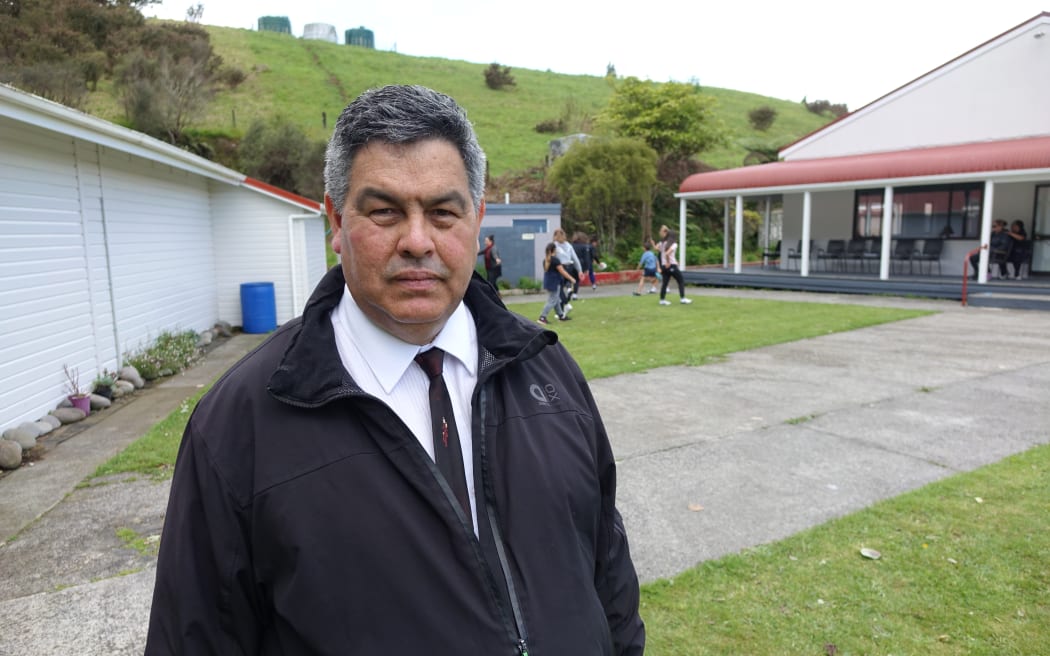
Anaru Marshall: "The pain of our experience is very real and close." Photo: RNZ / Robin Martin
Marshall said the settlement had now allowed the iwi to purchase some of the Pūrangi land back.
He said land was the greatest aspiration at the start of negotiations "and what else would a landless people want?"
The settlement returned 4655 hectares to Ngāti Maru, along with other compensations.
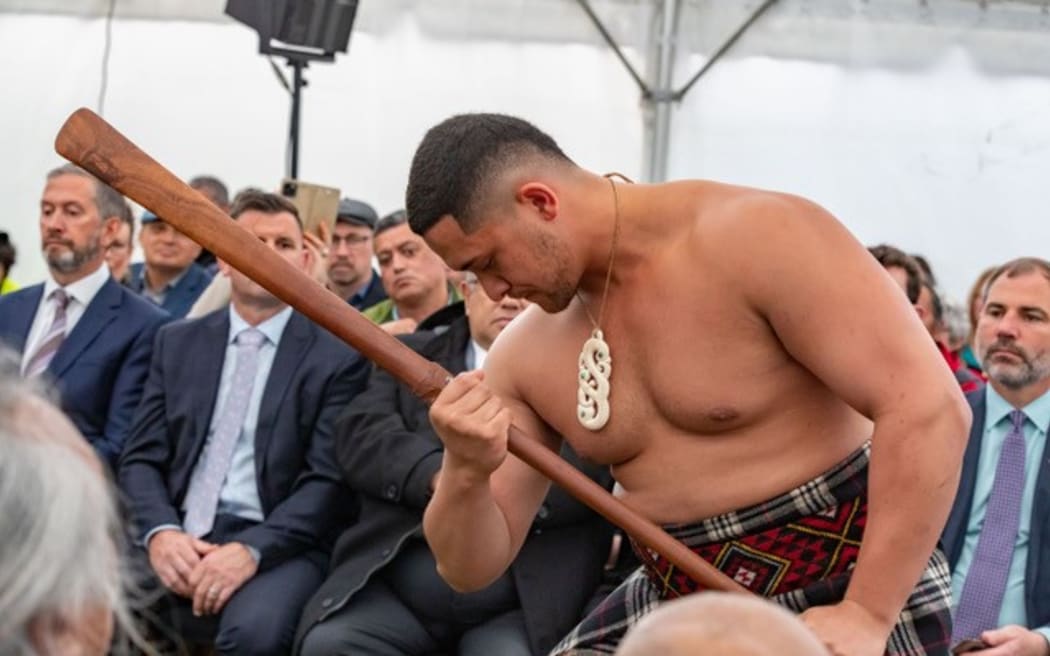
Tiaki Keogh honours tupuna (ancestors) as their living descendants receive the land titles. Photo: LDR/ Lisa Burd
The Crown apology and settlement with Ngāti Maru
Ngāti Maru wasn't involved in the Taranaki Land Wars from 1860, yet had half of its land confiscated by the Crown in punishment.
In the 1870s the Crown paid some Ngāti Maru compensation, creating significant divisions in the iwi.
Much of the rest of Ngāti Maru land was taken via the Native Land Court and Public Trustee leases that benefited Pākehā farmers.
In the early 1890s, Ngāti Maru asked for help. The Crown response was slow, ineffective and land provided was poor and small. In 1946 the Crown finally refused any further land.
The loss eroded tribal structures, created severe poverty, and damaged the physical, cultural, and spiritual health of generations.
The Crown imprisoned without trial Ngāti Maru members for peaceful resistance at Parihaka.
In the 1890s the Crown built a road through Pohohitoa urupā despite knowing it was a burial site. Remains were exhumed, causing profound anguish.
Ngāti Maru consider the Waitara River an ancestor. Industrial and dairy pollution, gravel extraction, and deforestation degraded the river causing great distress.
Treaty breaches undermined Ngāti Maru's systems of authority and knowledge, and rituals and art forms for their maintenance and development, compromised economic capacity, and threatened physical, cultural, and spiritual well-being.
The confiscated lands and resources significantly contributed to the wealth and development of Taranaki, and New Zealand.
Ngāti Maru received financial and commercial redress of $30 million, including the right to the purchase of Te Wera Forest and 35 other Crown properties.
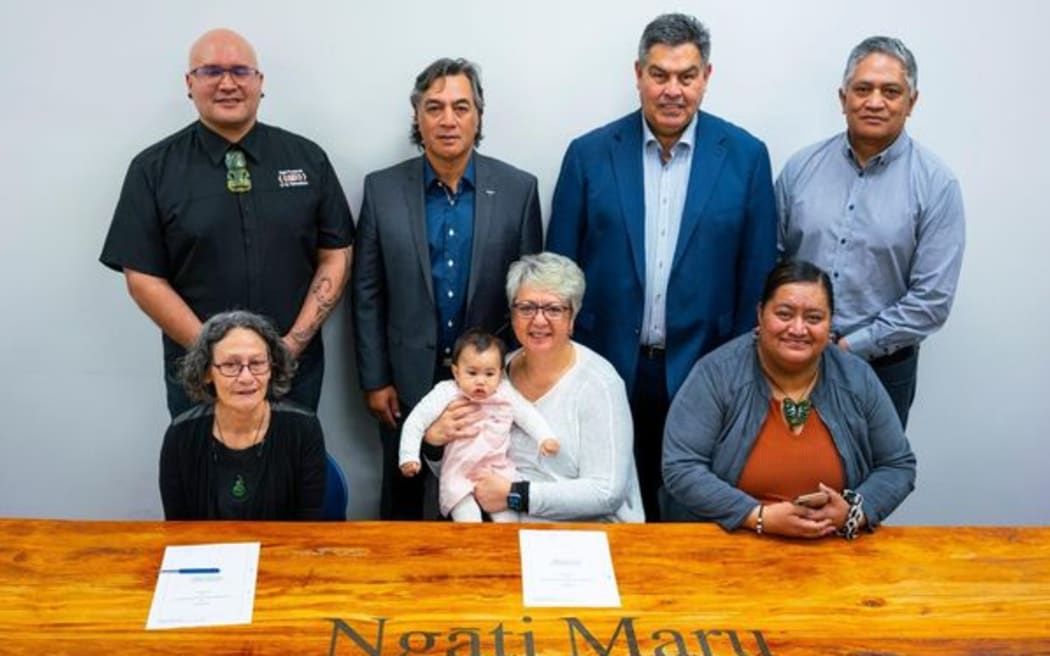
The team that negotiated on behalf of Ngāti Maru. Photo: Supplied via LDR
Cultural redress included the vesting of 16 sites of cultural significance and $1 million for cultural revitalisation.
Seven sites, including Pūrangi Domain, were returned as ordinary property. The other nine, including Tarata Domain, were returned but remain as reserves.
Ongoing, the Crown must consult with Ngāti Maru over many conservation areas and reserves, and parts of Waitara, Manganui, Pātea, Tangarākau, and Whangamōmona Rivers and their tributaries.
Local authorities must now take into account Maru Taiao, a plan outlining the values and principles of Ngāti Maru and resource management.
Taranaki Regional Council must sign a joint management agreement with Ngāti Maru over the Waitara River and its catchment and oils and gas wells and mining consents.
Local Democracy Reporting is Public Interest Journalism funded through NZ On Air


